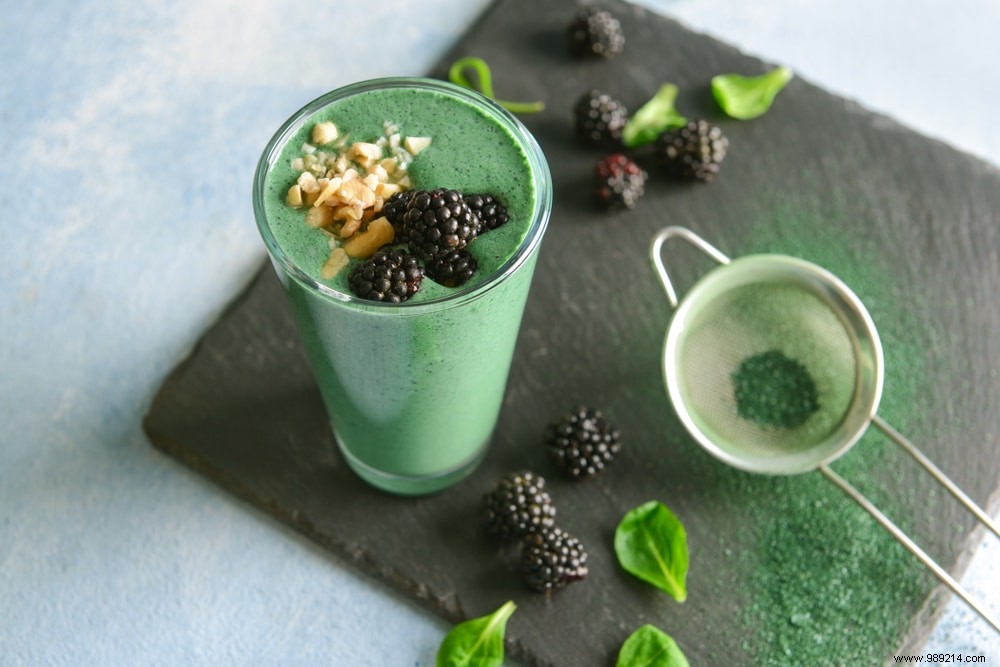
Do you know spirulina? This microalgae with a surprising blue color that we consume in powder or capsules? Considered a "superfood", spirulina contains vitamins and minerals and has various benefits for the body. When and how to consume it? What are the contraindications? We take stock of spirulina!
Spirulina, what is it?
Spirulina, also called "blue algae", is a microalgae that feeds on minerals. It thrives in warm marine environments, when the water exceeds 30 degrees. We consume all the parts of the organism of the algae, in dry or fresh form. Spirulina contains many minerals, vitamins and trace elements.
Due to its richness in nutrients, spirulina is often considered as what is called a "superfood". In fact, it contains between 55 and 70% excellent quality protein. It also contains beta-carotene, iron, magnesium, antioxidants, as well as essential fatty acids such as gamma-linoleic acid, from the omega 6 family. Finally, spirulina provides vitamins A, B1 , B2, B3, B6, B7, B8 and B12, D, E and K.
What are the benefits of spirulina?
Spirulina can be consumed for various reasons:
How to include spirulina in your diet?
Spirulina is marketed in the form of flakes, powder, or even tablets.
The recommended dosage varies according to profiles and corpulence. The recommended dosage is between 1 and 5 grams of spirulina per day. However, depending on the uses, you can consume up to 10 grams per day, especially in athletes, who eliminate more.
Recipe:a quick spirulina smoothie
This recipe is good for 4 smoothies. Mix all the ingredients together in a blender. Serve chilled and enjoy your smoothie in the morning as an accompaniment to breakfast .
Spirulina:what contraindications?
Before starting a cure of spirulina, it is recommended to seek advice from your pharmacist. Question contraindications, spirulina is not recommended for pregnant women and those who are breastfeeding, as well as people undergoing chemotherapy. An overdose of spirulina can also cause intestinal problems.
However, it is also advisable to be well informed about the origin of the product, and in particular the lake in which it was cultivated. Indeed, the main danger would be to consume a spirulina from a polluted aqueous environment, insofar as its body tends to easily absorb toxic substances. Preferably, therefore, buy spirulina produced in France, in drugstores or organic stores, for product traceability.
This little blue algae with multiple benefits has no more secrets for you! In prevention or cure, spirulina accompanies you on a daily basis to provide you with essential minerals, vitamins and trace elements. For more advice on your daily health and well-being, discover our prevention videos on sleep, diet and stress!
Source:
https://www.doctissimo.fr/html/sante/phytotherapie/plante-medicinale/spiruline.htm
https://www.passeportsante.net/fr/Solutions/PlantesSupplements/Fiche.aspx?doc=spirulina_ps
https://www.e-sante.fr/spiruline-les-risques-et-les-contre-indications/actualite/616208